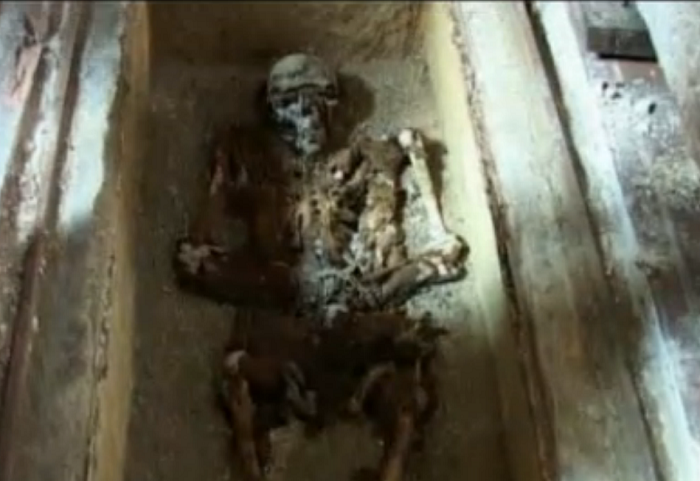New culture minister halts DNA project aiming to unveil the mysteries of Romania's medieval kings

 Romania's ongoing project to sample DNA from its historic rulers, the Basarab family, may be halted, as current Culture Minister Puiu Hasotti asked for the project to be stopped, "out of respect for what the rulers meant to the country," he said.
Romania's ongoing project to sample DNA from its historic rulers, the Basarab family, may be halted, as current Culture Minister Puiu Hasotti asked for the project to be stopped, "out of respect for what the rulers meant to the country," he said.
Researchers started the DNA sampling project on Thursday (june 28 ) at Curtea de Arges, where the tomb of Vlaicu Voda was opened after almost 700 years, in an attempt to settle the controversy over the origin of the Basarab family, the first feudal dynasty in the current Romanian territory.
The Culture Minister says the researchers' authorization does not allow them to sample DNA, but only to carry out an archaeological dig. The authorization was issued before Hasotti took over at the helm of the Culture Ministry.
“Maybe for scientific purposes sampling DNA would be important, but out of respect for what the rulers mean to Romania and its heritage, I cannot agree with DNA sampling. It is important what they meant for the national history, and not whether they have or don't have cumanic origin,"said the Minister.
The Cumani, a group of Oghuz Turkish tribes originating from Asia, are said to have ventured into Transylvania around 1,000 AD and many of them stayed on what is now Hungarian current territory. Some researchers suggest that the Romanians – or the Vlachs, were also called Black Cumani, and that Negru Voda, who founded the Tara Romaneasca, came from Transylvania and was a Cuman. Linguists also mention the many village names including the root Coman/Cuman in this region of Romania.
Researchers from various scientific institutions in Romania attended the disinterment at Curtea de Arges and took a phalange form the left hand, a molar and a right metatarsal, which will be analyzed. The samples taken will be sent to several places in Romania and in other countries. The sampled remains of Vlaicu Voda will be sent to the Babes Bolyai university in Cluj – Napoca and then to universities in the Netherlands, the UK and Spain. The Vasile Parvan Archaeology Institute in Bucharest is the main beneficiary of these research studies.
Archaeologists will then move to the Cozia monastery, where Mircea cel Batran's tomb is located, and then to Dealu monastery, near Targoviste, for the tomb of Mihai Viteazul, both important rulers in the history of Romania. Mircea cel Batran ruled between 1386 and 1418, while Mihai Viteazu, under whose leadership Romanians unified for the first time, reigned between 1593 and 1601.
“The project is wider and targets all kings in the last 1,500 to 2,000 years. The first is Vladislav I, known as Vlaicu Voda, of the Basarab family, who by tradition have their origins in Tara Romaneasca, from Radu Negru, according to historians,” said Alexandru Simion, researcher at the Romanian Academy. There are some researchers who started saying the dynasty had a cumanic origin, rooted in Asia. “We want to find out the truth,” said the Romanian Academy researcher.
editor@romania-insider.com
(photo source: screen capture ProTV)












